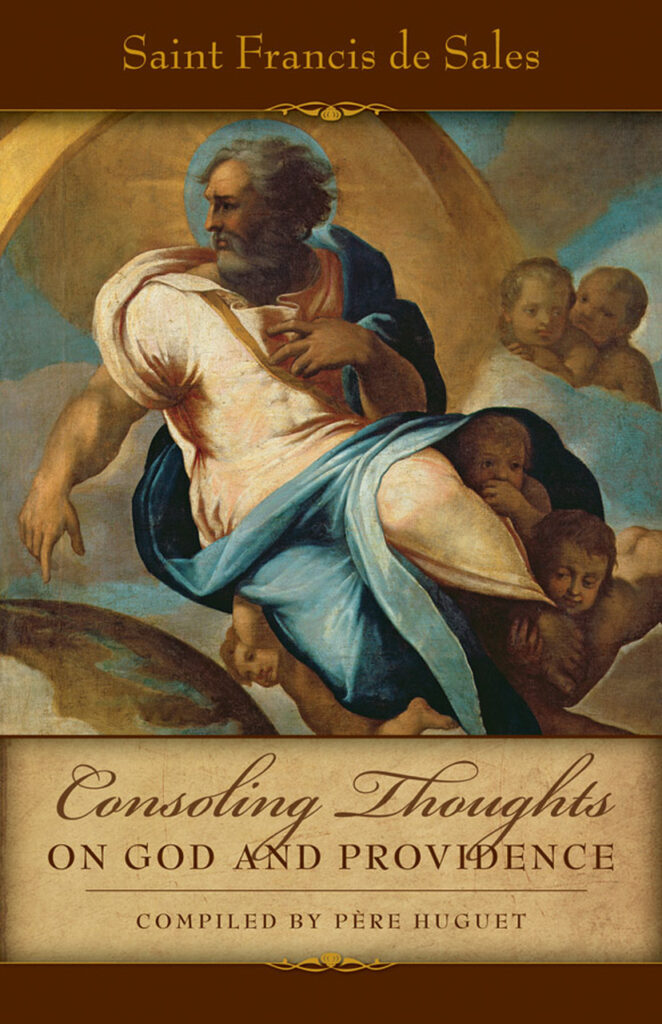“If sin abounds in malice to destroy, grace superabounds to repair.”
-St. Francis de Sales
The entrance of sin takes away life from the heart and from all its good works; the entrance of grace restores life to the heart and to all its good works. A severe winter kills the plants of the field, so that, were it to continue always, they should remain forever dead.
Sin, the sad and fearful winter of the soul, kills the holy works which it finds there, and, were it to continue always, never should life or vigor return. But as, on the approach of lovely spring, not only the new seeds which we cast into the earth, shoot up and bud, under the influence of this mild season of fecundity, every one according to its kind, but also the old plants, which the bitterness of the preceding winter had wasted and withered, grow green again, and take back their former life.
So sin being destroyed, and the grace of Divine Love coming back to the soul, not only the new affections, which the return of the sacred springtime brings, germinate and produce many merits and benedictions, but also the works faded away under the harshness of the winter of past sin, being delivered from their mortal enemy, and reinvigorated, and, as it were, resuscitated, flourish anew, and fructify in merits for eternal life.
Such is the omnipotence of celestial love, or rather the love of celestial omnipotence. “If the impious man turn away from his impiety, and do judgment and justice, his soul shall live. Be converted, and do penance for your iniquities, and your iniquity shall not be to your ruin,” says the Almighty Lord. And what does He mean by saying: “Iniquity shall not be to your ruin,” unless that the ruins it had made will be repaired? Thus, besides the thousand caresses which the Prodigal Son received from his father, he was re-established in all the dignities and advantages he had lost.
And Job, an image of the penitent sinner, received in the end double of all he had possessed. God, then, does not forget the words of those who, having lost His holy love by sin, recover it by penance. But God forgets works, when they lose their merit and sanctity by supervening sin, and only remembers them again when they return to life and value by the presence of love; so that the faithful, in order to be recompensed for their good works, as well by an increase of grace, as in the enjoyment of future glory and of eternal life, are not obliged never to relapse into sin, but it suffices, according to the sacred Council of Trent, to depart this life in the grace and charity of God.
God has promised an eternal recompense to the works of the just man; but if the just man turn away from his justice by sin, God will no longer remember his justices, or the good works which he has done. But if, nevertheless, this poor man, after falling into sin, rises again, and returns to Divine Love by penance, God will no longer remember his sin, and if He will no longer remember his sin, He will then remember his preceding good works, and the recompense they had deserved, since sin, which alone can take them away from the divine memory, is effaced, abolished, and annihilated.
Thus the justice of God obliges His mercy, or rather, His mercy obliges His justice, to regard anew the past good works, as it they had never been forgotten; otherwise, the penitent king would not have dared to say to his Master: “Restore unto me the joy of Thy salvation;” and confirm me with Thy perfect spirit. For as you see, he not only seeks a newness of spirit and of heart, but asks that the joy of which he had been deprived by sin, may be restored to him. Now this joy is nothing else than the will of heavenly love, which rejoices the heart of man.
The same may not be said of works of charity as of sin; for the works of the just man are not effaced, abolished, or annihilated by supervening sin, but only forgotten; while the sin of the wicked man is not only forgotten, but effaced, abolished, and annihilated by holy penance. Wherefore, a just man’s sin does not vivify forgiven sins, for they were entirely annihilated; but love, returning to the soul of the penitent, restores life to former good works, because they were not annihilated, but only cast into oblivion. It is not reasonable that sin should have as much power against charity, as charity against sin; for sin proceeds from our weakness, but charity from the divine omnipotence.
This article is taken from a chapter in Consoling Thoughts on God and Providence by St. Francis de Sales which is available from TAN Books.









